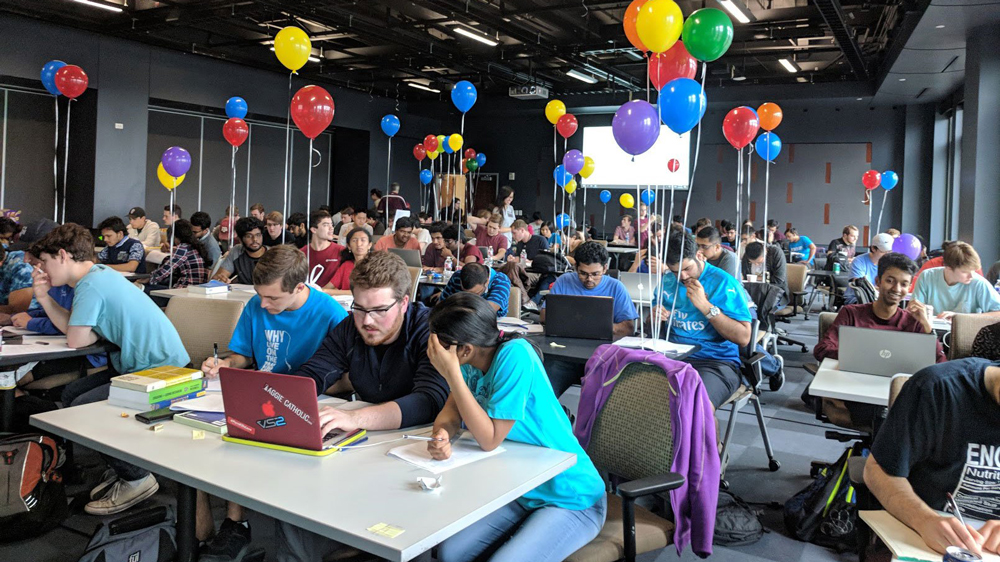
The Department of Computer Science and Engineering at Texas A&M University recently launched a new student organization geared toward students with an interest in competitive programming.
Competitive programming is an intellectual sport usually held over the internet or a local network, involving participants trying to write programs to solve well-defined problems within a specified amount of time.
The Aggie Competitive Programming Club’s (ACPC) mission is to give students the opportunity to learn, practice and teach competitive programming techniques and algorithmic problem-solving skills, as well as promote a healthy environment.
“Overall, we just want to create a love for learning and an increased level of competitiveness for Texas A&M students in local, regional, national and international programming competitions,” said Tanner Hoke, founder and president of the ACPC.
The club holds weekly meetings where members teach a skill or present a topic in competitive programming for discussion as well as solving practice problems. All students are welcome to attend the meetings. To become a member, they must attend six ACPC events per semester.
“Competitive programming brings an aspect of problem-solving to light that is often neglected or underappreciated,” said logistics officer Adil Rasiyani. “By giving students an opportunity to pursue problem-solving as more than just a means to land a job, we hope to create a higher level of competence and understanding, as well as strengthen critical thinking skills.”
The ACPC is also involved in organizing programming contests. Each semester, the club hosts a big contest that’s designed to allow programmers of all skills levels to participate. The club also holds practice contests every few weeks exclusively for members so they can continue to build upon their skills and experience in a competitive environment.
In October, the club held its fall programming contest on the Texas A&M campus. During the competition, which was open to all Texas A&M students, participants were challenged to solve as many problems as they could within three hours on the Codeforces platform.
“In the past, I have participated in some of the department’s programming contests, and even before I knew what competitive programming was, I found the problems in these contests interesting and satisfying to try to solve,” said web officer Alex Labbane. “As I learned more about competitive programming, I was introduced to interesting new data structures and algorithms, and my problem-solving skills began to rapidly improve. When I heard about the ACPC I was excited to have a community of other individuals to learn alongside. It has proven to be a very rewarding and motivating experience.”
To stay up to date on the club's meetings and events, visit the ACPC website.